In a world where memes spread faster than a cat video can go viral, social media literacy isn’t just a nice-to-have—it’s a must! Navigating the digital landscape can feel like trying to find a needle in a haystack of hashtags. With every scroll, users encounter a mix of facts, fiction, and everything in between. Understanding how to sift through this chaos is essential for making informed decisions and avoiding the dreaded misinformation trap.
Table of Contents
ToggleUnderstanding Social Media Literacy
Social media literacy encompasses the skills necessary to navigate digital platforms effectively. These skills include identifying credible sources and critically analyzing online content.
Definition of Social Media Literacy
Social media literacy refers to the ability to access, analyze, evaluate, and create content across various social media platforms. It involves understanding different types of information, recognizing bias, and differentiating between reliable sources and misinformation. Users with strong social media literacy can engage thoughtfully with content and contribute positively to online conversations. Learning these skills is crucial for meaningful engagement in a digital society.
Importance in Today’s Digital Age
In today’s digital age, social media literacy plays a vital role in combating misinformation. As users frequently encounter conflicting narratives and false claims, the ability to discern truth becomes essential. High levels of social media literacy enhance users’ experiences and promote responsible sharing of information. Individuals equipped with these skills can make informed decisions, foster critical discussions, and contribute to a more informed online community. The rise of social media underscores the necessity of these skills for safeguarding democracy and promoting social cohesion.
Key Components of Social Media Literacy

Understanding social media literacy requires recognizing its essential components. Two critical elements are critical thinking and responsible online behavior.
Critical Thinking and Analysis
Analyzing content is vital in the digital age. Users must examine information thoroughly and identify biases present in various posts. Evaluating sources for credibility works hand in hand with discovering facts versus misinformation. Engaging with a variety of perspectives enhances one’s understanding and promotes informed decision-making. Recognizing persuasive techniques in posts allows individuals to comprehend intentions behind the content. Ultimately, sharp critical thinking skills lead to confident interactions in online environments.
Responsible Online Behavior
Promoting responsible online behavior remains crucial for a positive social media experience. Sharing accurate information and verifying facts play important roles in preventing the spread of misinformation. Understanding privacy settings on platforms contributes to a safer digital presence. It’s also essential to consider the impact of one’s words and actions on others. Encouraging empathy and respectful discourse fosters a supportive online community. Each individual’s choices collectively shape the social media landscape, reinforcing the importance of accountability in online interactions.
Challenges to Achieving Social Media Literacy
Navigating social media can be complex due to various challenges. Users encounter significant hurdles in recognizing credible information amidst the overwhelming presence of misinformation and disinformation.
Misinformation and Disinformation
Misinformation refers to false information shared without malicious intent, while disinformation involves deliberately spreading falsehoods to deceive others. Many struggle to differentiate between the two, leading to confusion. Users may share inaccurate content, believing it to be true, which perpetuates misinformation. Disinformation campaigns can target specific individuals or groups, manipulating narratives to sway opinions. Critical thinking skills play a vital role in discerning fact from fiction. Offering guidance on identifying credible sources can help users navigate these challenges effectively.
Navigating Online Privacy Concerns
Online privacy concerns significantly impede users’ ability to engage confidently on social media. Many individuals unknowingly overshare personal information, which can lead to privacy violations. Users often face complicated privacy settings that are difficult to navigate. Understanding these settings proves essential for safeguarding personal data. Educating users about privacy implications fosters safer online interactions. Secure browsing practices and the importance of selective sharing promote a careful approach to online engagement. Prioritizing privacy literacy equips users to protect themselves while participating in the digital community.
Strategies for Enhancing Social Media Literacy
Enhancing social media literacy requires proactive approaches. Specific strategies can empower users with the skills necessary to navigate digital platforms effectively.
Educational Initiatives and Resources
Various educational initiatives promote social media literacy. Schools and organizations often offer workshops focused on critical thinking and content evaluation. Online platforms also provide resources such as webinars, articles, and interactive courses. Collaborations between educators and digital literacy advocates enhance the accessibility of these materials. Many libraries host programs to help community members develop their digital skills. Engaging with these resources cultivates informed users who can navigate the complex social media landscape.
Practical Tips for Individuals
Individuals can adopt several practical tips to improve their social media literacy. First, verifying sources before sharing information ensures accuracy. Engaging with diverse perspectives enriches understanding and combats echo chambers. Users should regularly review privacy settings to protect personal information. Curating feeds to include credible sources fosters a balanced view of issues. Lastly, practicing respectful dialogue promotes a healthier online environment. These simple yet effective strategies can significantly enhance one’s ability to discern information online.
Social media literacy is an essential skill in today’s information-driven world. By cultivating the ability to critically analyze content and recognize credible sources, individuals can navigate the complexities of social media more effectively. This not only empowers them to make informed decisions but also fosters a more responsible online community.
As users engage with diverse perspectives and prioritize respectful discourse, they contribute to a healthier digital landscape. Embracing educational resources and practical strategies enhances social media literacy, allowing everyone to combat misinformation and protect their privacy. Ultimately, the collective effort to improve social media literacy strengthens democracy and promotes social cohesion in an increasingly interconnected world.








